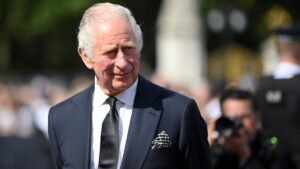Dutch anti-Islam populist leader Geert Wilders has withdrawn his candidacy for prime minister, despite his party’s significant victory in the 2023 elections.
In a statement on X, formerly Twitter, Wilders explained, “I can only become prime minister if ALL parties in the coalition support it. That was not the case.”
Although his Freedom Party (PVV) secured the highest number of votes in the previous year’s election, forming a coalition necessitated the support of other political parties.
Negotiations persist with three other parties to outline the composition of a new government.
The negotiator overseeing the latest discussions, which concluded on Tuesday, is scheduled to present his findings to parliament on Thursday.
“I would like a right-wing cabinet. Less asylum and immigration. Dutch people first. The love for my country and voters is great and more important than my own position,” Mr. Wilders wrote in his post on Wednesday evening.
Mr. Wilders, aged 60, has engaged in months-long discussions with the centre-right liberal VVD, New Social Contract (NSC), and BBB farmers’ parties in attempts to establish a coalition government.
This week, leaders of these three parties emphasized that they would only proceed if all four party leaders agreed to abstain from government roles, as reported by Dutch public broadcaster NOS.
It remains unclear whether a compromise figure for the prime minister’s position has emerged.
A parliamentary debate on this matter is anticipated on Thursday, coinciding with the presentation of findings by the individual facilitating discussions between the four parties, Kim Putters.
Speculations suggest that the parties may be willing to form a minority government with an “extra-parliamentary cabinet,” where none of the four party leaders would assume ministerial roles but would remain as MPs.
The distribution of the prime ministerial position and cabinet roles remains uncertain. With Mark Rutte’s 14-year tenure coming to an end, the subsequent Dutch government is likely to feature a more symbolic prime minister, with ministers possibly hailing from outside politics as well.
This model of governance is endorsed by New Social Contract leader Pieter Omtzigt and liberal VVD leader Dilan Yesilgöz. It would entail adherence to a concise policy agenda, granting greater authority to parliament, although specific operational details are yet to be defined.
According to Dutch media, the Netherlands has not witnessed a prime minister from a party other than the largest one in the government since the 1980s. Additionally, the last time a Dutch prime minister was not the leader of one of the governing parties dates back to 1918.
The victory of PVV last year not only caused a seismic shift in Dutch politics but also sent ripples across Europe, considering the Netherlands’ status as one of the founding members of what evolved into the European Union.



























